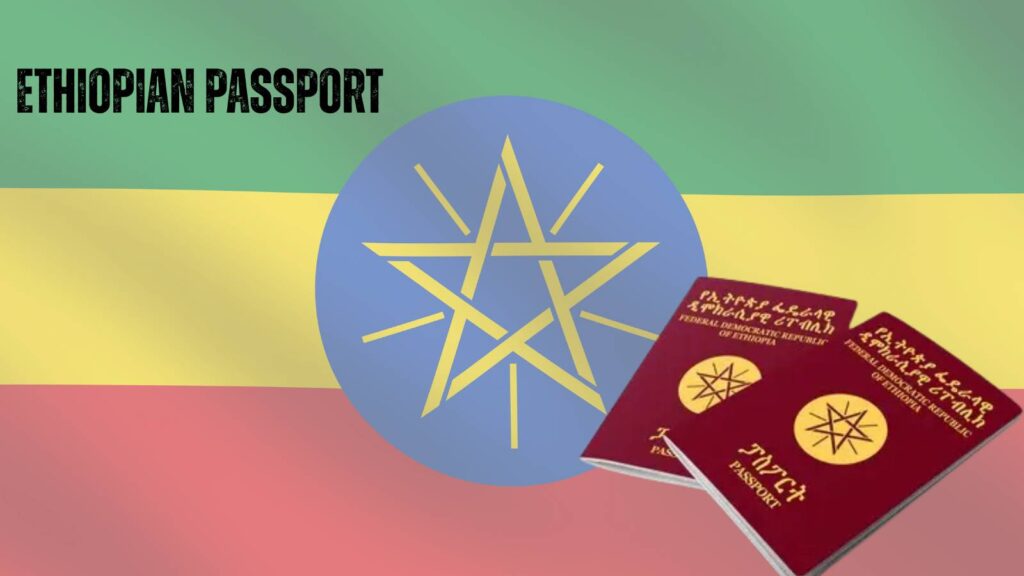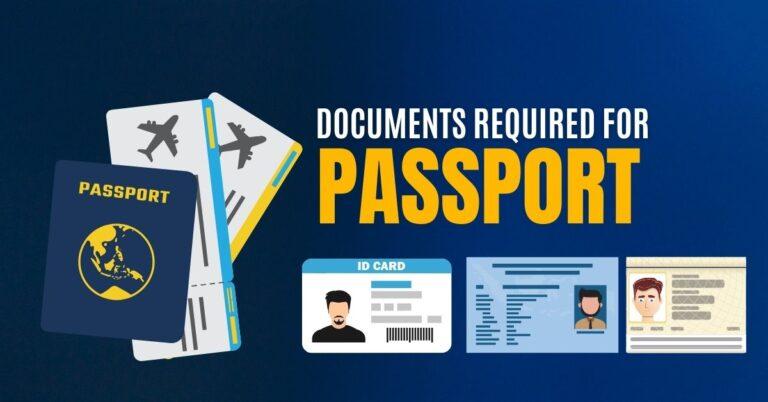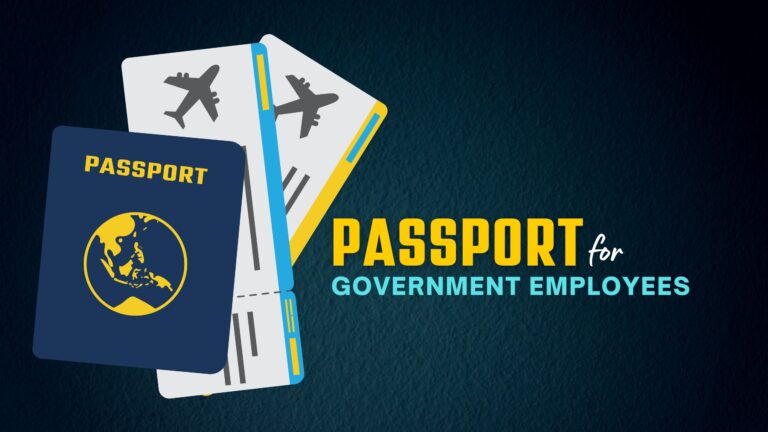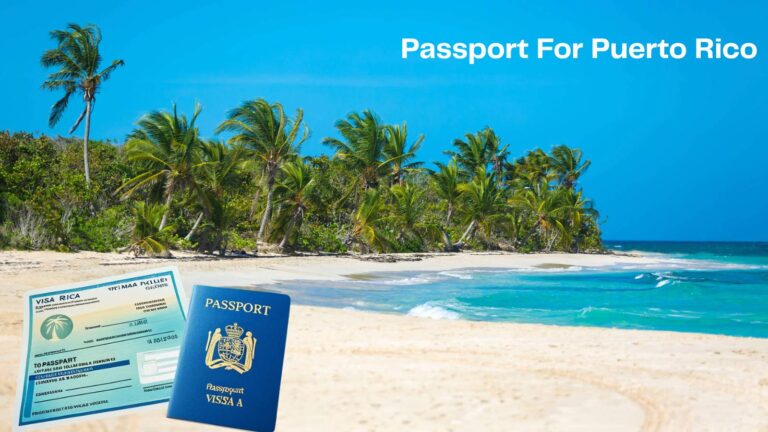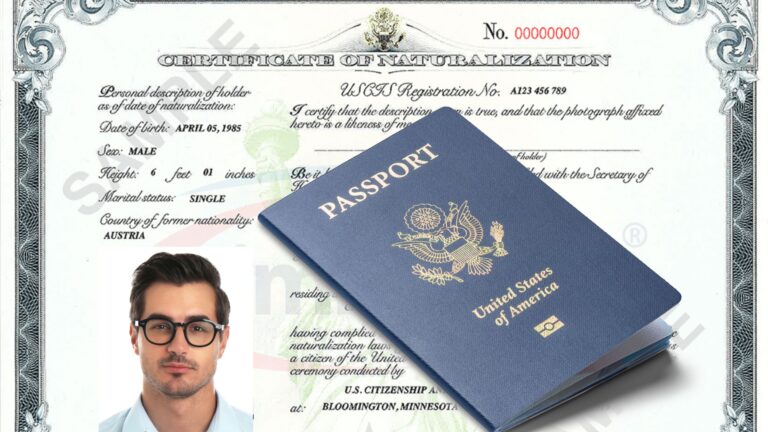Traveling internationally requires more than just a destination and a suitcase—it requires an official travel document that represents your identity, nationality, and legal right to cross international borders. For Ethiopian citizens, the Ethiopian passport serves as that vital document. It not only allows individuals to travel abroad but also provides access to diplomatic and consular protection while overseas.
Understanding how to apply for, renew, and make the most of this passport is essential for students, business professionals, tourists, and families alike. In today’s interconnected world, where opportunities for global education, business, and travel are rapidly expanding, ensuring that your passport is valid and up to date can make the difference between a smooth journey and a stressful one.
Understanding the Ethiopian Passport
The Ethiopian passport is more than just a book of pages—it is a reflection of citizenship and a gateway to the world. Ethiopia issues different categories of passports, each tailored to specific needs and official capacities. The Ordinary Passport is the most common type, designed for Ethiopian citizens who wish to travel for personal, educational, or professional purposes.
The Service Passport is issued to government employees and officials traveling abroad for official duties, while the Diplomatic Passport is reserved for high-ranking officials, diplomats, and their families. Additionally, there is an Emergency Travel Document, which can be issued to citizens in urgent situations such as medical emergencies or evacuation needs.
A standard Ethiopian passport has a validity period of five years and comes with security features such as biometric data, holograms, and digitally captured fingerprints to prevent forgery or misuse. It typically comes in 32-page or 64-page formats, with the larger version being especially useful for frequent travelers who may run out of visa pages quickly.
Understanding the category and structure of the Ethiopian passport helps applicants choose the right type for their needs while also preparing them for the travel privileges it provides.
How to Apply for an Ethiopian Passport
Eligibility Requirements
Applying for an Ethiopian passport requires proof of citizenship and a valid reason for holding the document. Every Ethiopian citizen, regardless of age, has the right to apply, provided they can present the required documents. Children can also apply for passports, but additional consent from parents or legal guardians is necessary.
For adults, proof of identity through a Kebele ID or other valid national identification is mandatory, alongside documentation confirming Ethiopian nationality such as a birth certificate.
Documents Needed for First-Time Applicants
Preparing the necessary documents before heading to the Immigration and Citizenship Service office is crucial for avoiding delays. First-time applicants must bring a Kebele ID card, which serves as the most recognized form of identification in Ethiopia, a birth certificate, recent biometric-compliant passport photographs, and the passport application form provided by the immigration office.
Payment receipts for application fees must also be submitted. For children, the application additionally requires parents’ IDs, the child’s birth certificate, and a signed consent letter. Without these supporting papers, the application may be delayed or rejected, which is why preparation is essential.
Step-by-Step Application Process
The application process involves several steps, all of which must be followed carefully:
- Visit the Immigration and Citizenship Service – Applicants within Ethiopia must go directly to the Addis Ababa headquarters, while those abroad can apply through Ethiopian embassies or consulates.
- Complete the application form – Accuracy is critical; your name and personal details must match your official records exactly. Any discrepancies could lead to rejection.
- Biometric data capture – A digital photograph, fingerprints, and a digital signature are collected to ensure the security of the passport.
- Submit documents – All required documents are verified by the immigration officer to confirm eligibility.
- Pay application fees – Applicants must pay depending on whether they are applying for a 32-page or 64-page passport.
- Wait for processing – Once verified, the passport enters the printing stage, after which it can be collected or delivered, depending on the service chosen.
Application Fees and Processing Time
The Ethiopian passport application fee depends on the number of pages chosen. A standard 32-page passport is the most affordable, while a 64-page passport costs slightly more. Processing usually takes between 2 to 6 weeks, though urgent services may be available at an extra cost.
Applicants are encouraged to apply well in advance of their travel dates, as delays can occur during high-demand seasons or due to technical issues.
How to Renew an Ethiopian Passport
Who Is Eligible for Renewal
An Ethiopian passport cannot be extended beyond its expiration date, which means renewal is required once the validity period of five years comes to an end. Renewal is also necessary if the passport runs out of visa pages, is damaged, or is no longer accepted by foreign authorities due to wear and tear.
Both adults and children are eligible to renew, but children will need updated parental consent documentation along with their application.
Required Documents for Renewal
For renewal, applicants must bring their expired or soon-to-expire passport, along with a valid Kebele ID or equivalent national identification. A renewal application form must be filled out, and in some cases, new biometric photographs may be requested if the immigration office requires updated data. Proof of payment for the renewal fee must also be presented before processing begins.
Renewal Process
The renewal process is relatively straightforward:
- Submit the old passport and documents to the Immigration and Citizenship Service or Ethiopian embassy.
- Provide biometric data if the system requires updates to photographs or fingerprints.
- Pay the renewal fee and ensure the receipt is kept for collection.
- Wait for processing, which can take up to a month depending on location and demand.
Renewal Fees and Timelines
Renewal costs are generally more affordable compared to replacing a lost passport. However, processing times vary depending on where you apply. Inside Ethiopia, renewals are faster, while applications submitted through embassies abroad may take longer due to communication between offices.
It is always advisable to start the renewal process at least six months before expiration, as many countries will not issue visas to passports with less than six months’ validity.
Replacing a Lost, Stolen, or Damaged Passport
Losing an Ethiopian passport while at home or abroad can be a stressful experience, but it is not an uncommon problem. The first step is to report the incident to the nearest police station and obtain an official police report.
This serves as proof of loss or theft and will be required during the replacement process. Once the report is secured, applicants must visit the Immigration and Citizenship Service in Addis Ababa or the nearest Ethiopian embassy abroad to apply for a replacement.
The replacement process requires presenting alternative identification documents such as a Kebele ID, birth certificate, or national identification card to verify citizenship. The replacement fee is usually higher than a regular renewal because of the added administrative work involved in confirming identity and issuing a new document.
For citizens abroad, Ethiopian embassies provide emergency travel documents if immediate travel is necessary, but these are typically valid for a limited time and destination.
Benefits of Holding an Ethiopian Passport
Visa-Free and Visa-on-Arrival Countries
The Ethiopian passport gives its holders access to a growing number of visa-free and visa-on-arrival destinations worldwide. While the list is not as extensive as that of some Western nations, it does include several African, Asian, and Caribbean countries where Ethiopians can travel without needing prior visas.
This makes the passport a valuable tool for regional business and tourism, especially within Africa where Ethiopia has strong diplomatic ties.
Business, Education, and Work Opportunities
Holding a valid Ethiopian passport opens doors to numerous opportunities. Students can apply to universities abroad, business professionals can attend international conferences or seek investment opportunities, and workers can apply for jobs outside the country.
The passport essentially acts as the first step toward global mobility, giving citizens the ability to participate in the international workforce, global markets, and higher education systems.
Consular Protection Abroad
Another key benefit of the Ethiopian passport is the protection it affords through the network of Ethiopian embassies and consulates worldwide. If citizens face emergencies such as illness, arrest, or loss of documents while abroad, consular offices provide critical support.
This assistance can include legal guidance, emergency travel documents, and communication with families back home, giving travelers a safety net in unfamiliar environments.
Tips to Maximize the Benefits of Your Ethiopian Passport
Owning an Ethiopian passport is not just about having a document—it is about using it strategically for travel, work, and education. One of the most important tips is to monitor validity regularly. Since many countries require at least six months of validity before granting visas or allowing entry, renewing your passport early prevents last-minute complications.
Travelers should also register with Ethiopian embassies while abroad, especially when living in a foreign country for an extended period. Registration ensures that in times of political unrest, natural disasters, or emergencies, the embassy can contact and support citizens quickly.
Ethiopians can also benefit from regional agreements that simplify cross-border travel for trade and tourism, taking advantage of Ethiopia’s memberships in African organizations. Finally, for those eligible for dual citizenship, strategically using two passports can maximize mobility and reduce visa-related challenges while still maintaining strong ties to Ethiopia.
Common Challenges and How to Overcome Them
Dealing with Delays
One of the most common challenges with the Ethiopian passport process is administrative delays. During peak periods, such as summer or major holidays, the volume of applications increases significantly, leading to longer waiting times. To overcome this, applicants should plan ahead, apply early, and avoid last-minute submissions.
Handling Rejections
Passport applications can be rejected if supporting documents are incomplete, outdated, or inconsistent with official records. For example, discrepancies between names on a birth certificate and a Kebele ID may cause delays or rejections. The best way to prevent this is to ensure all documents are accurate, updated, and verified before submission.
Travel Restrictions
Although the Ethiopian passport provides access to several countries, many destinations still require visas, often with complex application processes. Overcoming this challenge requires proper planning—researching visa requirements well ahead of travel dates and preparing supporting documents such as financial statements, travel itineraries, and invitation letters.
With global opportunities in education, trade, and employment growing each year, holding a valid Ethiopian passport has never been more important for individuals who wish to connect with the world.
FAQs
1. How long does it take to get an Ethiopian passport?
The Immigration and Citizenship Service usually issues passports within 2 to 6 weeks. If you apply abroad through embassies, expect longer processing times due to additional verification.
2. What documents do I need to apply?
You must present a Kebele ID, birth certificate, biometric passport photos, a completed application form, and proof of payment. For minors, parents must also provide their IDs and a consent letter.
3. Can I renew my passport before it expires?
Yes, you can renew your passport early, and it is highly recommended to do so at least six months before expiration, since many countries reject passports with shorter validity.
4. How do I replace a lost passport?
You must first report the loss or theft to the police and obtain a report. Then, submit your replacement application at the Immigration office in Addis Ababa or the nearest Ethiopian embassy.
5. Can I apply while living abroad?
Yes, Ethiopian embassies and consulates allow citizens to apply for or renew passports. However, processing usually takes longer because documents must be verified in Ethiopia.
6. How much does a passport cost?
The fee depends on the number of pages. A 32-page passport costs less, while a 64-page passport is more expensive but better for frequent travelers. Replacement passports generally cost more than renewals.
7. What if my passport is damaged?
If your passport is torn, water-damaged, or has unreadable biometric data, you must apply for a replacement. Damaged passports are invalid for travel and may cause airlines or immigration to deny boarding.
8. Where can I travel visa-free with an Ethiopian passport?
Ethiopian citizens can travel visa-free or get visas on arrival in several African, Asian, and Caribbean countries. The list changes often, so you should check updated requirements before traveling.
9. Can children get an Ethiopian passport?
Yes, children can apply for passports, but parents must handle the process. Required documents include the child’s birth certificate, photos, parents’ IDs, and a signed consent letter.
10. Can Ethiopians hold dual citizenship with a passport?
Ethiopia generally does not recognize dual citizenship. However, people of Ethiopian origin with foreign citizenship may qualify for the Ethiopian Origin ID Card (Yellow Card), which grants certain rights within Ethiopia.
